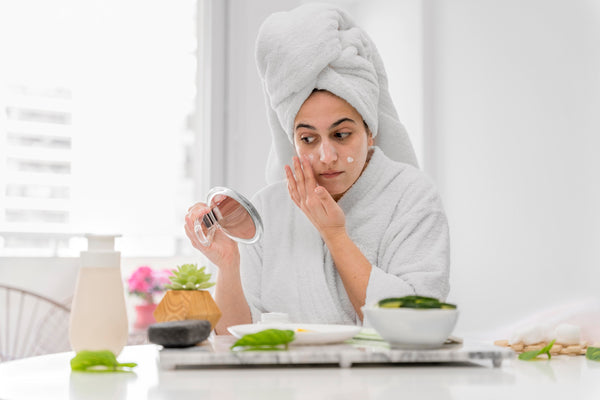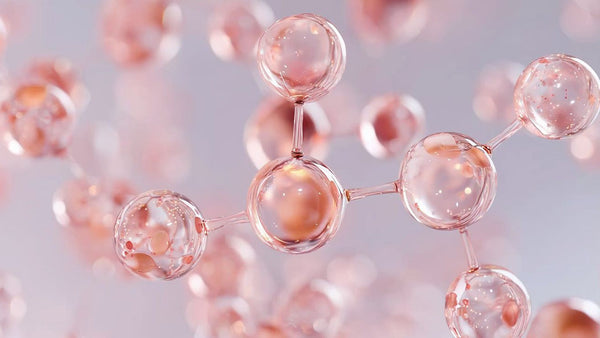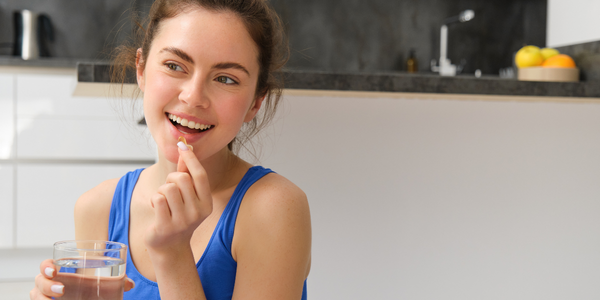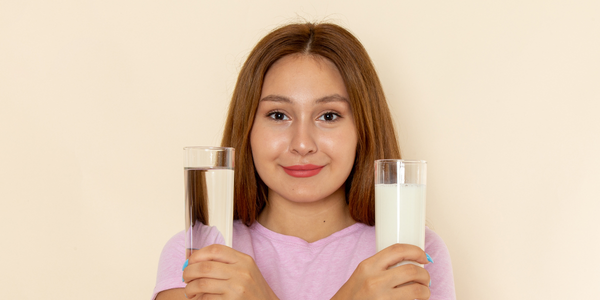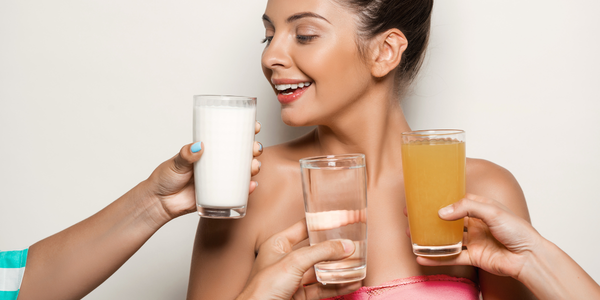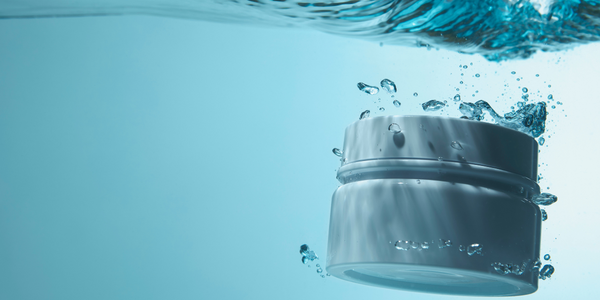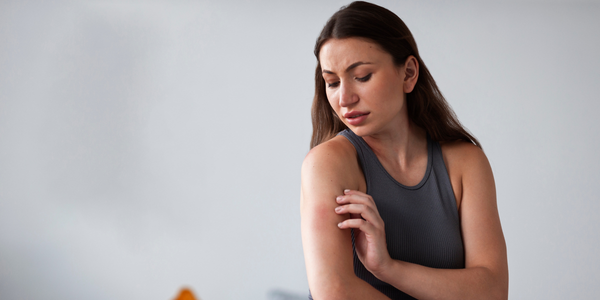One of the most abundant proteins in the human body responsible for dewy and youthful skin, strong bones and muscles, pain-free joints, and a healthy gut is collagen. Collagen is the predominant structural protein that forms the connective tissue all over the body, right from the bones, muscles, ligaments, and tendons to the skin. When it comes to your skin, approximately 80 percent of it comprises this essential protein. Starting at 25, we lose about 1.5 percent of collagen every year, which gradually results in drier and aged-looking skin. To top it all, skin exposure, pollution, and other things such as cigarette smoke only tend to add to its further deterioration. That is why we must include collagen supplements in our daily routine.
What Is Marine Collagen?
Marine collagen is one of the most preferred sources of collagen. Marine collagen, also known as fish collagen, is obtained/extracted from the bones, skin, and fish scales. Many consider this the most effective collagen source, especially for your skin and bone health support. Marine collagen is a source of type I and type III collagen. But before we get into it any further, let’s look at the different types of collagen to understand what they are.
- Type I collagen is the most copious collagen in the body. Responsible for healthy skin, bones, hair, and nails. Given that it is present in the connective tissues, a lack of this collagen causes the skin to sag, fine lines to surface on the face, and nails to turn brittle. This collagen isn’t just a component that takes care of your long-lasting beauty but is also a significant substance that is responsible for the health of your tendons, bones, and organs. Having it as part of your daily diet and wellness routine is essential for your wellness and self-care routine.
- Type II collagen makes up to 50% of the body and is found in the cartilage. That’s why it is responsible for maintaining healthy bones and is often used by many to treat osteoarthritis.
- Type III collagen is seen in the artery walls, epidermis, and internal organs. This collagen also supports the muscles, organs (including the skin), arteries, and vessel walls. This collagen is usually found alongside type I collagen in the body.
Both types I and III collagen work together to promote long-lasting hair, skin, bone, and nail health. They help increase skin elasticity, keeping it youthful, supple, and glowing always. Additionally, it helps stimulate the production of amino acids, particularly glycine, which is responsible for burning fat and muscle-building.
How Is Marine Collagen Better Than The Other Sources of Collagen?
Here are some of the reasons why you should consume marine collagen over the other sources of collagen.
- When it comes to selecting the right kind of collagen for you, marine collagen is the most recommended one as it is the most bioavailable of all the other sources of collagen. Simply put, it helps digest the food more quickly and efficiently - almost 1.5 times quicker than the different sources of collagen, namely bovine and plant-based collagen. Explicitly speaking, marine collagen procured from wild-caught fishes is the cleanest form of collagen out of all the other sources of collagen.
- Marine collagen is also the best source of collagen for improving skin health. That is why you will find it an essential ingredient in many nutrition and beauty products. It is the best form of collagen that will slow down signs of ageing, such as wrinkles, dry skin, and pigmentation, while giving you glowing, elastic and youthful skin. Apart from being known as the best type of collagen for skin improvement and beautification, it is also known for medicinal uses such as enhancing gut health, initiating quick wound healing, and strengthening hair and bones, among other things.
- Moreover, this source of collagen is free of harmful antibiotics and GMO feed, unlike bovine collagen, which is sourced from the discarded parts of cows. Additionally, given that the sourcing methods of the collagen are questionable, the latter is known to have poor efficacy. On the other hand, plant-collagen or collagen builders are not collagen in the real sense of the word. Instead, it is a blend of vitamins and herbs that help stimulate collagen production in the body. However, it has the lowest rate of effectiveness when compared to marine and bovine collagen. Marine collagen is almost 25 times more effective than any plant-based collagen.
- That is why marine collagen is the best option you have when it comes to choosing the right kind of collagen to supplement your diet and slow-down ageing, especially of the skin. It is pescatarian-friendly and the safest out of the three to consume, especially for those who cannot consume meat products for whatever reason. Having said that, it is always recommended to consult your regular doctor (who is well acquainted with your before starting any dietary supplement, including collagen. This will help you, particularly if you have any underlying fish allergies that you are not aware of. If you are vegan, you can only take plant-based collagen supplements, popularly known as collagen builders.
Why is Wellbeing Nutrition’s Pure Korean Marine Collagen Peptides The Best Form Of Marine Collagen?
If you're looking for a brand of marine collagen to start with and are confused about which one to go for, we have the perfect option for you. Wellbeing Nutrition’s Pure Korean Marine Collagen Peptides is a highly effective product, which has been manufactured using innovative science, the global standards of development. Sourced from wild-caught fishes like cod, pollock, and haddock from Korea's deep, pristine waters, the collagen peptides (Type I & III), are hydrolyzed to a low 3000 Dalton molecular weight to create the most unadulterated and best collagen on Earth.
- If you consume this consistently every day, you will get:
- Smooth, firm, and youthful skin with reduced wrinkles, pigmentation, and fine lines,
- Stronger ligaments, joints, and cartilage
- It keeps all kinds of bone-related issues at bay
- improves wound recovery period
- impeccable digestion.
All you need to do is add one scoop of 8 grams in 150-200 ml of water or any preferred drink at room temperature. This powder is flavourless and odourless, so it can seamlessly dissolve in any drink/smoothie/tea/coffee you add it to. Once you add it to the liquid in question, stir it properly until it completely dissolves. Drink it all up and enjoy the benefits it has to offer. You can ideally consume it any time of the day, but for best results, it’s best if you drink it either in the morning or right before hitting the bed.
Final Takeaway
Collagen is the adhesive that holds things together in the body. Quite literally!! With age, this essential protein starts diminishing little by little, and that’s why it becomes imperative to add it in our diet, either in the form of natural foods or effective supplements to replenish it. Marine collagen, as seen above, is the most sustainable and bioavailable option compared to the other options- bovine or collagen builder. Give Wellbeing Nutrition’s Pure Korean Marine Collagen and see your skin, hair, nail, and bone health improve!
References:
- Collagen, The Nutrition Source, Harvard TH Chan School of Public Health. (https://www.hsph.harvard.edu/nutritionsource/collagen/)
- Evans, M, Lewis, ED, Zakaria, N, Pelipyagina, T, Guthrie, N. A randomized, triple-blind, placebo-controlled, parallel study to evaluate the efficacy of a freshwater marine collagen on skin wrinkles and elasticity. J Cosmet Dermatol. 2020; 20: 825– 834. https://doi.org/10.1111/jocd.13676. (https://onlinelibrary.wiley.com/doi/full/10.1111/jocd.13676)
- Marine Collagen as A Promising Biomaterial for Biomedical Applications, Ye-Seon Lim, Ye-Jin Ok, Seon-Yeong Hwang, Jong-Young Kwak 2 and Sik Yoon, marine drugs, (https://www.mdpi.com/1660-3397/17/8/467/pdf)
- Xu Ning, Peng Xue-Liang, Li Hao-Ru, Liu Jia-Xuan, Cheng Ji-Si-Yu, Qi Xin-Ya, Ye Shao-Jie, Gong Hai-Lun, Zhao Xiao-Hong, Yu Jiangming, Xu Guohua, Wei Dai-Xu,Marine-Derived Collagen as Biomaterials for Human Health, Frontiers in Nutrition, VOLUME=8, 2021, 493, (https://www.frontiersin.org/article/10.3389/fnut.2021.702108),














